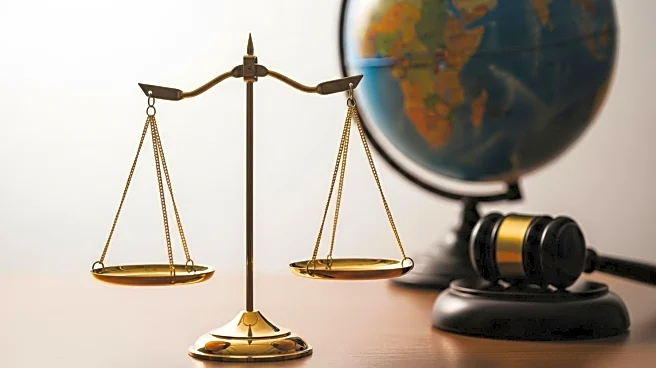What's Happening?
President Trump is currently in the United Kingdom for his second state visit, which comes at a time of heightened global trade tensions. The visit coincides with a significant court challenge to his trade policies that is set to be heard by the U.S. Supreme Court. This legal challenge could have implications for the administration's approach to international trade. Meanwhile, across the English Channel, U.S. technology companies are facing regulatory fines and taxes imposed by the European Union, adding to the complexity of international economic relations.
Why It's Important?
The visit and the pending Supreme Court case are critical as they could influence U.S. trade policy and international relations. The outcome of the court challenge may affect how the U.S. engages with trade partners and could lead to changes in tariffs and trade agreements. Additionally, the regulatory actions by the EU against U.S. tech firms highlight ongoing tensions in digital trade and data privacy, which could impact the operations of major American companies abroad. These developments are significant for stakeholders in industries such as technology, manufacturing, and agriculture, which are directly affected by trade policies.
What's Next?
The Supreme Court's decision on the trade policy challenge will be closely watched, as it could set a precedent for future trade negotiations and agreements. Political leaders and industry groups are likely to react based on the court's ruling, potentially leading to shifts in policy or strategy. Furthermore, the regulatory environment in the EU may prompt U.S. companies to adjust their business practices or seek diplomatic solutions to mitigate the impact of fines and taxes.
Beyond the Headlines
The broader implications of these events include potential shifts in global economic power dynamics and the role of the U.S. in international trade leadership. Ethical considerations regarding trade practices and regulatory compliance are also at play, as countries navigate the balance between protecting domestic industries and fostering global cooperation.











